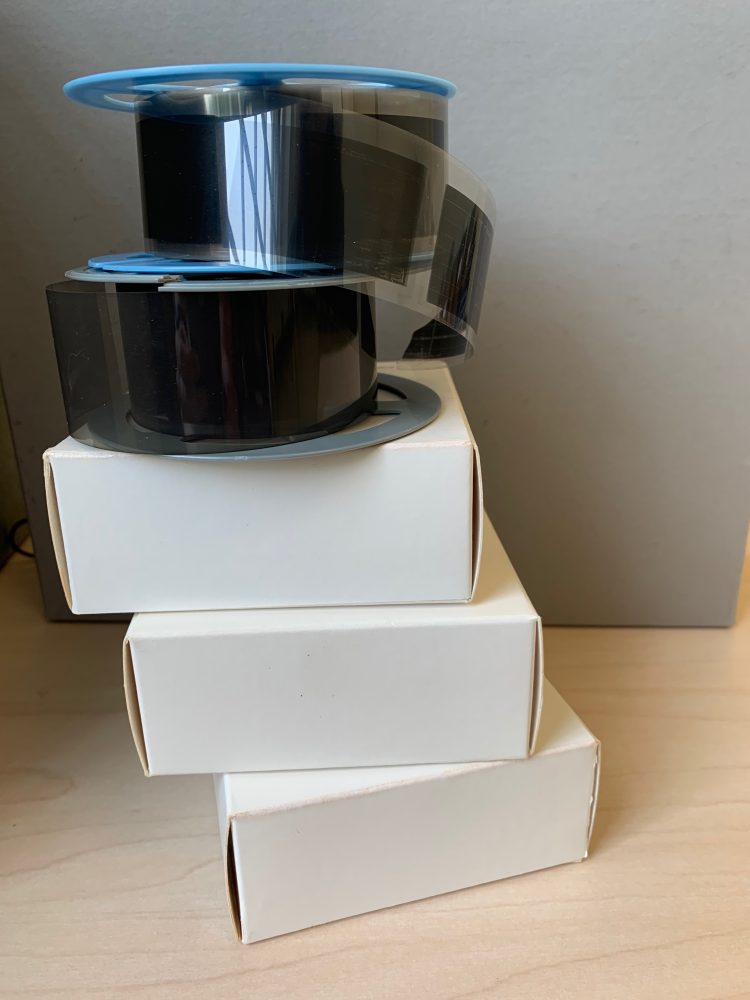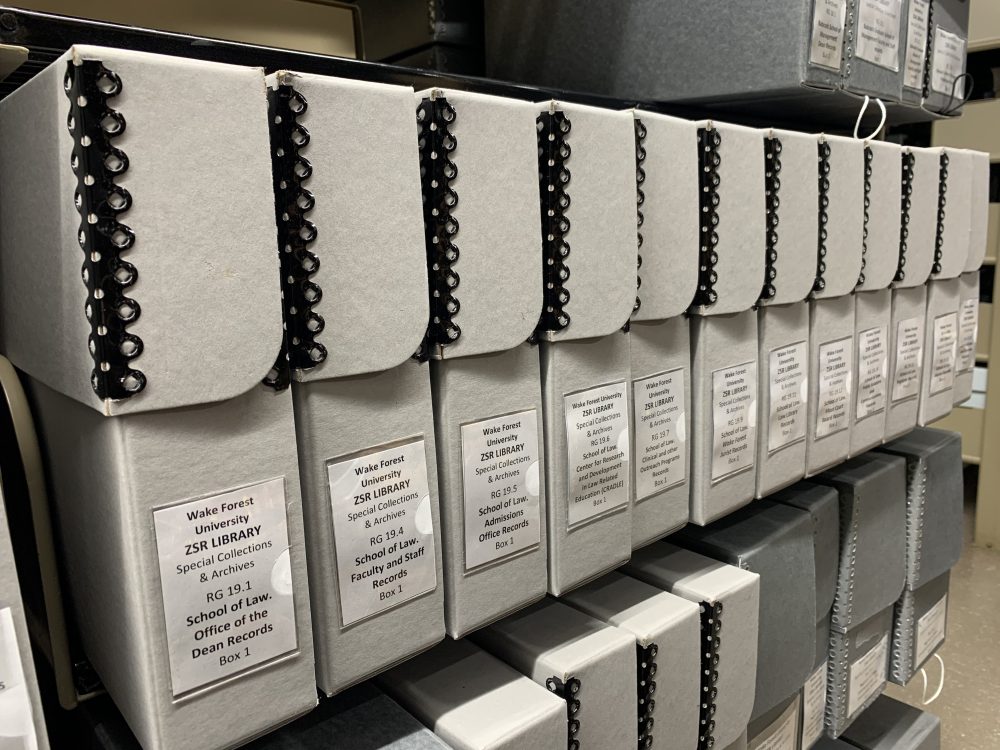In August of last year, I started as a Reference and Processing Assistant in Special Collections and Archives. Coming to this work mid-career, with a background in teaching, I draw on existing skill sets for some tasks but face a learning curve for others. I can’t emphasize enough how encouraging and supportive the Special Collections and Archives crew has been as I have found my way within the department.

My work is generally split between reference tasks and archival processing – with a sprinkle of instruction in the mix.
In terms of reference, I assist visiting researchers and support remote reference on LibAnswers. I’ve been surprised by how much the public, genealogists in particular, makes use of the NC Baptist Collection. I like working in a space that holds resources of interest to both Wake and the wider community. I’m always learning . . and also spending lots of quality time on the microfilm reader.

In terms of processing, my focus is on organizing and describing select University and Baptist records. Earlier this year, I drafted finding aids for School of Law records. Currently, I’m working on finding aids for new church records. Ongoing tasks include processing physical additions to our Biographical Files and Photograph Collection.
Developing a more in-depth understanding of these materials helps me share them with users. This spring, I enjoyed co-teaching classes about Special Collections. I also share our collections through updates to the WFU Timeline and, recently, a subject guide on the history of the Child Care Initiative at WFU. The guide reflects a long-running discussion, and I am inspired by the tenacious community of advocates who secured this important resource just last year.
Discovering, preserving, and spotlighting these types of stories is a highlight of working in Special Collections and Archives.

9 Comments on ‘What Are You Working On? With Emily Houlditch’
We really appreciate your skills and attitude Emily! Thanks for everything you do.
Thank you, Emily! You are a great addition to the SCA Team and we appreciate all you do.
Emily, this is such valuable work! Many thanks!
Thank you for your fearless approach to everything from microfilm to ArchivesSpace, Emily!
Glad to learn more about your work. Happy to have you with us!
I’m pretty sure this is the first time I’ve read the phrase “quality time on the microfilm reader”. Thanks for doing what you do!
That’s a lot of projects in one year! We’re so happy to have you on the team, Emily.
This is wonderful , Emily. These projects are impactful, and will greatly benefit researchers! I’m happy to hear you seem to enjoy using the microform reader (it’s a acquired taste!). Maybe we can coordinate a training session for Public Services!!!!!!! Thank you for sharing this post!
Thank you for your work, Emily! We are so happy you’re here!